Kenneth A. Camp's Blog, page 23
June 19, 2015
7 Four Letter Words I Want My Son to Learn
Father's Day Post

I admit. I enjoy being a father. The cool thing is that this year, Father’s Day lands on the same day CPS placed my son in our home as a foster child four years ago. I enjoy watching him grow and seeing his personality come alive while he explores his world. I also enjoy teaching him.
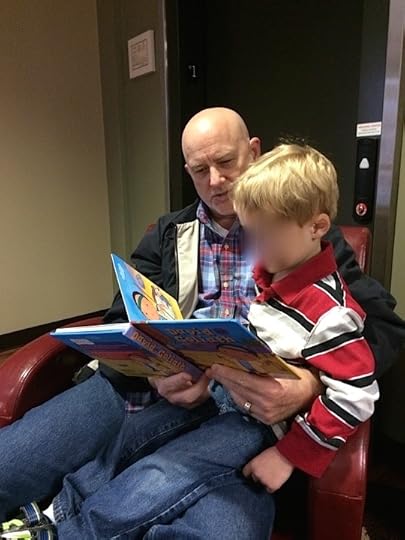
I was thinking the other day about how we as parents try to shield our kids from negative things—like four letter words! But there are many four letter words I want my son to learn. Not just learn them, but know what they mean and how to apply them in his life.
7 Four Letter Words I Want My Son to Learn
Work – It seems to me, sadly, that our culture is losing it’s work ethic. People look for a handout instead of putting in the work to earn what they have. I want my son to not only learn how to work, but how to enjoy work.
Play – Learning to balance work and play will keep him young, at least at heart. If he has a family, knowing how to play with his kids will help him connect with them.
Rest – Very few, in our culture at least, know how to rest well. God created us to know sabbath rest. Rest along with play really re-creates our soul and mind.
Give – Our son is already blessed with more than he will ever need. Most who live in America are. I want my son to learn to give with a cheerful heart. Learning how to give wisely will teach my son how to help and influence others without hurting them.
Save – We are teaching our son now how to spend, give and save. We have three jars, and any money he “earns” or gets as a gift we divide up into these jars. At this age, he gets to “save” his money for something he wants to buy. As soon as he has enough money, he can buy it. He has no or very little reason to ever go into debt if he will learn how to save now.
Love – Some learn to love well and others never ever get it. When they don’t get it, they tend to go down destructive paths. I want my son to learn that he is loved by me, his mom, and most of all a God who knows him like no other. I also want him to learn how to love others in a sacrificial way. Knowing that others are just as important as he is will help him in relationships of all kind. I want him to know that the greatest kind of love is the love God showed us through the sacrifice of His son for us.
Pray – I want my son to learn the power of prayer; that it’s not just a ritual, but communing with the living God. I want him to learn how to depend on God as his provider, sustainer, source of wisdom and guidance.
I am sure as time goes on, I will add to this list of four letter words I want my son to learn. But for this Father’s Day, I think this is a good start. Thank you God for allowing me to be a father to my precious son.
June 16, 2015
Why Your Child Pushes You Away
The Trauma Dance

Some days, when our son is having a good day, I easily forget that he experienced trauma as a baby. Then…he bangs his head, skins his knee or maybe breaks a toy. And I see what we now call the trauma dance.

It begins with him running toward me or Danielle. We wait with sad faces and anticipation of comforting him. But he doesn’t make it to our outstretched arms. He suddenly veers off and runs in crazy circles crying as if he is looking for the one thing that will comfort him yet not really sure what he is looking for or where to find it.
He has even pushed me away in anger when I have reached out to hold him.
One time when I was out of the country, something upset our son. He was crying to Danielle that he wanted his daddy even though she was right there more than willing, even desperate to comfort him. Danielle gently explained that I couldn’t be there right then. “Any daddy will do!”, he yelled.
If you have experienced this you know all to well the helpless, sometimes hurt feelings stirring within you as you watch your child push, maybe even run away from you.
It’s moments like this that remind us with a starkness that pierces our soul that our child has suffered loss, anguish, pain…trauma. For many of our children, they were too young to remember the trauma they experienced, at least explicitly.
Yes, it hurts my heart when my son reacts this way. Regretfully sometimes I respond out of anger or frustration. In my weakness I am offended. ” I am your Daddy! I can help you if you will just let me!”
Yeah, not a good scene when I join him in running around with my emotional lid flipped too.
It’s especially hard for adoptive parents like ourselves when a child pushes us away. We desperately want to connect with our child and offer him a safe and trusting environment.
Why does our son do the trauma dance?
When most children get hurt, they immediately run for mom or dad for comfort. However, children from a “hard place” or traumatic background often respond like my son.
“This happens not only when they are injured, but also wen they are sad, embarrassed, frustrated, lonely, or angry—even when they are tired or hungry. In all of these situations and many others their reactions can look a lot like willful disobedience or defiance. In turn, parents often respond by coming down hard and using discipline that physically isolates their children and leads to even greater emotional distance between them.”
“Instead, children from hard places need to learn how to trust in order to heal. For this to happen, parents must move in closer even as their child pushes them away. They must resolve conflict and respond to misbehavior in ways that both correct and connect. This often requires parents to connect first, then correct—an approach that goes against the instincts of most parents, but actually can make their correction even more effective.” (from When Your Child Pushes You Away by Michael Monroe)
What does my son need in that moment?
Like Michael Monroe states in the quote above, my son needs for me to connect first, then correct. He needs for me to respond in a way that shows him that he is safe and “never alone”. He needs to know that I hear and see him. These responses will help build the connection and trust that naturally exists between a biological parent and child in a healthy family.
Even though it’s still hard sometimes for me to press in closer when my son pushes me away, I do it more often than not. Thankfully our connection has greatly improved. Now more times than not when he is hurt, angry, embarrassed, etc., he will look for us even if takes him a moment to fully trust us to meet his need for comfort and safety.
If you have a child who is pushing you away, I encourage you to press into him even when your natural tendency is do the opposite. I trust that over time, this approach will pay off—for you and me.
June 12, 2015
I Am Redesigning My Brand—You Can Help!
Hard to believe that I began blogging three years ago! Thank you for reading and joining the conversation! I enjoy finding others who are passionate about foster care, adoption, missions, and living a life sent.

Will you help me redesign my brand so that it communicates better how my site can benefit its readers like you?
You can do that by taking a few minutes and answering the 10 questions in my survey. Just click on the button below to get access to the survey.
Yes! I want to help!
Your feedback will help me choose topics, branding, and how my website looks. Your survey answers are anonymous.
Feel free to give more feedback (that won’t be anonymous) in the comment section below.
Thanks!
June 9, 2015
What Happens When Your Mind Is Still?
3 Important Reasons to Learn the Skill of Stillness

An elderly woman walked leisurely by while I sat in my beach chair. Danielle and our four-year-old son worked hard at making the perfect sand castle. The fourth in as many days. I noticed the woman make several glances at us as she passed. I smiled and said hello. She smiled back and exclaimed, “You guys look like a Norman Rockwell painting!”
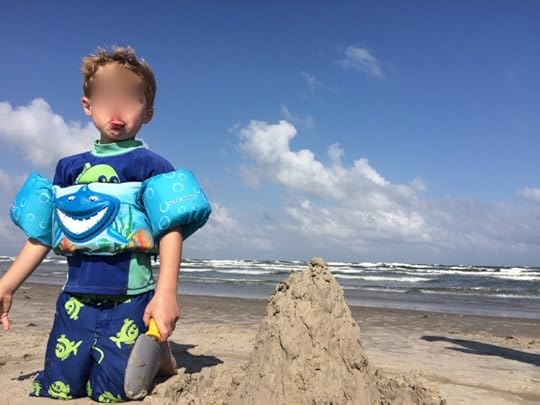
(That’s not quite the Norman Rockwell painting she was talking about!)
You know the kind of “everything is perfect” kind of picture. Danielle and I smiled back, then looked at each other with amusement. It was a nice complement even though we know better.
Just a few moments before the woman walked by, Danielle asked me a deep question. “Are you always thinking about the past or the future?”
When she asked the question, I was staring out into the ocean, my line of sight just over her and my son’s head. I pondered her question for a moment as it took that long for me to understand the real meaning. Am I able to keep my mind still in the present moment? Or does it always wander into a past memory or a future plan?
Great question! At least in that very moment, my mind was nowhere else but right there, admiring the determination on my son’s face as he worked on the “perfect” project, loving my wife as she entered his world, and visually inhaling God’s vast creation.
That is not my usual mental state though. Throughout life, I have struggled with being still, mentally. Resting in the moment, resisting the pull to be somewhere else, thinking about something different, either from the past or potentially in the future.
Are you like that?
In the past when on a vacation that especially was several days long, I easily became restless always needing something to preoccupy my mind. I found it hard to enjoy the moment. I did much better this time.
I didn’t write. I didn’t return email. All I did was play on the beach, swim in the pool, read, watch a little playoff basketball, and hang out with my family. And enjoyed the stillness.
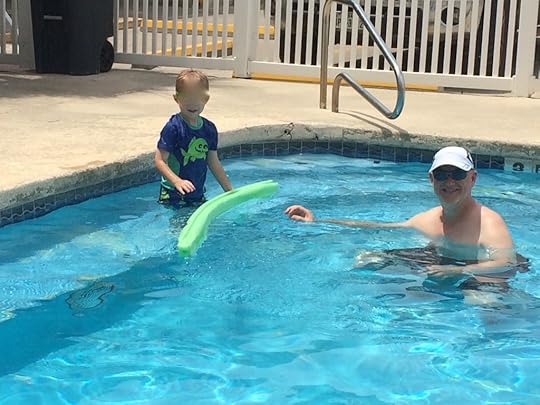
Fun time in the pool!
Why is this so hard for us to do? I bet some of you are even thinking that being mentally still isn’t really a good thing to do. Either you see it as a waste of time or you think that’s the last thing you want to do. Maybe you are afraid of where your mind will go—it’s too painful or disappointing or fearful.
Here are three reasons I think that learning how to still your mind is a good skill to learn:
Reveals Your Heart. When we still our minds and disconnect from all the external input, we begin to see what is in our hearts. I know this can be a scary thing or even a surprising thing. At least it can be for me. But when my heart is revealed, I learn what is important, what things that I might need to confront or confess, and if anything from my past needs healing.
Heals You Physically and Mentally. Some would call it meditation, that is, learning how to still your mind. Taking time to still your mind will help reduce stress and anxiety.
Reminds You that He is God. In my opinion, this is the most important reason to learn how to still your mind. Psalm 46 is my favorite Psalm. Psalm 46:10 says, “Be still and know that I am God”. He is my refuge, my strength, my very present help in trouble. God is the Master at simply Being. He is “the Great I Am”. When I still my mind and meditate on Him, I am reminded of who I am and who He is. It brings comfort to know this.
What would you add to the list?
June 5, 2015
How Telling Your Story Helps You Heal
3 Ways to Tell Your Story

As I watch and read the stories of victims of the recent flooding in Central Texas, I know many are telling their stories over and over. Many volunteers trained in Critical Incident Stress Management (CISM) are purposefully spending their time listening and asking questions to help victims tell their stories.

Survivors of a sudden event like a natural disaster, the unexpected death of a loved one, finding out they have a terminal illness, etc. often struggle to “make sense” of their new reality. Even though these survivors might need long-term care, a part of the immediate (and long-term) care involves them telling their story in a safe environment.
Even though a critical traumatic event might only happen once and over a short period of time, the reactions to the trauma can include “shock, denial, anger, rage, sadness, confusion, terror, shame, humiliation, grief, sorrow and even suicidal or homicidal ideation. Other responses include restlessness, fatigue, frustration, fear, guilt, blame, grief, moodiness, sleep disturbance, eating disturbance, muscle tremors or “ticks”, reactive depression, nightmares, profuse sweating episodes, heart palpitations, vomiting, diarrhea. hyper-vigilance, paranoia, phobic reaction and problems with concentration or anxiety”. (APA, 1994; Horowitz, 1976; Young, 1994).
Story telling is a powerful tool that has been used across cultures for many generations. Around a fireplace, a hearth, or a kitchen table, the telling of our stories has provided continuity and transition throughout time. A high-ranking marine officer reported in personal conversation, that post-traumatic stress disorder was unknown among the military until the Viet Nam war because of this powerful telling of stories. Before that time, soldiers were transported to and from war in large transport ships, spending weeks or even months crossing the ocean. During the days of their long journey, it is reported that they played cards by the hours and told their stories over and over and over again. Being safe with others who understood their story and “giving voice” to their fears, pains, terrors and hopes, provided a healing transition for those military personnel returning from war. (http://www.ncbi.nlm.nih.gov/pmc/articles/PMC3877861/)
Story telling is not only healing for survivors of critical or sudden traumatic events. Also survivors of complex or recurring trauma can find healing in telling their story or even hearing their story told over and over.
We experience this as parents of a child we adopted from foster care. We have learned the importance of telling our son his story, allowing him to ask questions about his story anytime he wants, and patiently working through any reactions he has to the story.
Do you have a story you need to tell?
Many who have experienced trauma suffer greatly because they keep their stories hidden deep within themselves. Fear, anxiety, lack of trust, etc. keeps them from sharing their story. If that’s you or you know someone who fits this description, here are three ways you or they can tell their story:
Verbally share your story with someone safe. If not a trusted friend who can simply listen and help you navigate your story, then a competent counselor can help. Hearing the audible sound of your voice telling your story helps your brain to reorganize and make sense of the trauma. Usually telling the story just once isn’t enough. So, finding a person or maybe even a few persons that are willing to hear the story more than once is important.
Journal. Writing your story down on paper or on a computer also helps get the story out of your mind. Personally I think writing the story the old fashioned way, with a pen or pencil on paper, is the best. Something about feeling the words as you write them.
Blog. Blogging has become a common way for someone who has experienced trauma to tell their story. Not only does the blogger get to share their story of trauma, challenges, and overcoming, but they also many times find community. Blogging allows others who have experienced a similar trauma to connect. Of course, some traumatic events might be too personal to share in such a public forum, but many are very appropriate.
Like the soldiers returning from war before the Viet Nam era, we need to take time to tell our stories. And, we need someone safe who will take the time to listen to our story. Which do you need to do today?
June 2, 2015
Protected: An Interview with a Missionary—Mary Serving in the Middle East (contact me for password)
An Interview with a Missionary—Mary Serving in the Middle East
Learn about the Day of Miracles in the Middle East
Mary has served for over 20 years in Africa, Eastern Europe, and now, as she calls it, the last frontier—the Middle East. Mary married a fellow missionary, Ron, a few years ago, and they plan to live out the rest of their lives serving on the mission field. (the names of the missionaries have been changed)
Mary is a great story-teller. Enjoy hearing some amazing stories of what God is doing in the region and among Muslims. I asked Mary the following questions:
What type of work are you doing?
How long have you served on the mission field?
Share some stories with us about what God is doing.
What are some challenges you face?
How can we support and encourage you?
“
It is the day of miracles.
—MISSIONARY IN THE MIDDLE EAST

If you want to learn about how you can support Mary and Ron, please contact me to get their information:
[contact-form]
May 29, 2015
Foster Care through the Eyes of a Foster Family
The Many Faces of Foster Care—An Interview with Brian and Sarah Kidd Miller
Foster families are often the most overlooked and unappreciated, yet the some of the most crucial, catalytic people involved in foster care. These are the ones sacrificing time, readjusting their lifestyle, and many times managing chaos to give a child a safe and healing home to live in. They really can make it or break it for these children from a hard place.
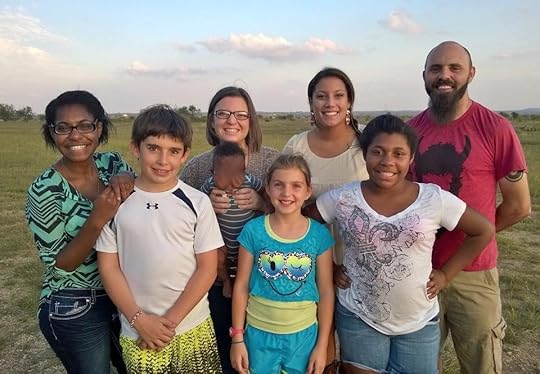
Many foster families I know would have made a good interview. I wanted a foster family that has fostered many children of all ages, are still currently fostering, and if possible, adopting through foster care. That describes Brian and Sarah Kidd Miller.
Enjoy this interview with the Millers:
How long have you been a foster family?
We have been a foster family for 6 years. It was our goal to be licensed by our 30th birthday(s).
How many children have you fostered? Currently fostering?
To date we have fostered 17 children ranging in age from preemie to 18 years-old. We have two biological children as well. When we started we (Brian) wanted one baby, foster only. We have discovered God had other plans. Our first eight placements came as sibling sets of two usually one baby and one toddler. For several years we lived in a perpetual state of potty training.
During that time we were working in Student Ministries at church and met and fell in love with a young woman in foster care. We tried to get her placed with us. Though that placement didn’t happen for reasons beyond our control (we learned so much about what was beyond our control in foster care), we had opened our hearts to teens.
Soon after, our agency called us with a teen needing immediate placement. We knew the moment she walked into our lives we would be her last stop. She was never legally available to adopt, but we committed to being her parents forever.
We then opened our age range up to – well – anything. Once you have a preemie and a teen at the same time, everything in the middle seems pretty doable.
Our biological children are now 11 and almost 13 years-old, a girl and a boy. We also have two girls, almost 13 and 17 (and as she will remind you, almost 18), that by the time this is posted we will have legally adopted. Our 13 year-olds are only 11 days apart. Our oldest child (our first teen) is now 21 and an incoming senior at Texas State. And, we are currently fostering a precious 10 month old little boy who is the joy and light of our family.
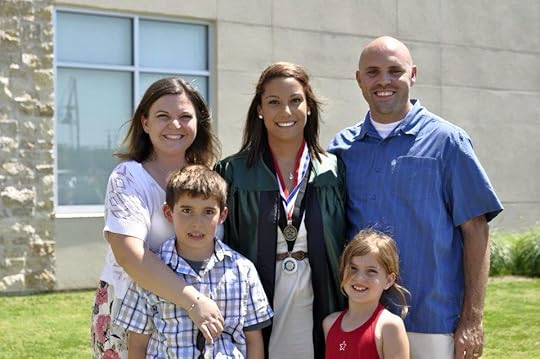
Tell me about your daughters you are adopting.
Because our eyes were opened to the challenges faced by kids aging out of foster care through walking our daughter through the aging out process and accessing all her benefits, we understood the dire need to adopt teens. We knew that the young children have many families hoping to adopt them and the older the kids get, the more difficult it becomes to find families willing to adopt.
The statistics about teens aging out of care are dismal and include high rates of incarceration, homelessness, and a cycle of their own children entering into foster care. On many occasions our oldest daughter recognized that she would not have “made it” without parents to help her navigate life after foster care. Besides the financial support and stability of having a home to go to, she recognizes that just having a parent to call when she needs help or love is something she would struggle without.
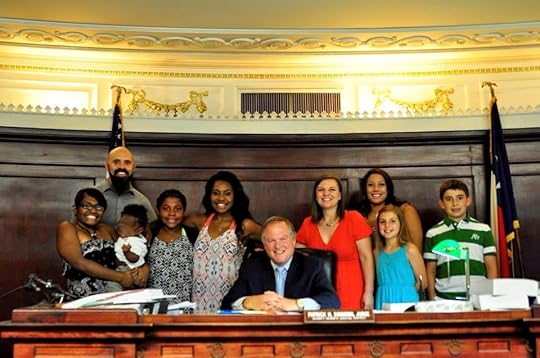
What compelled you to foster children?
In my teen years I knew that I wanted a large family. My wise mother suggested that if I were to have biological children to also consider that there are many children in this world living without parents to love and protect them. I knew on a spirit level that I would raise children that weren’t biologically mine.
In college as a nursing student, I did my psych rotation on a pediatric floor. I would venture to say that 90% of the children at the psychiatric hospital had been abused in some way. This led me to question further what my role in this could be. All of us from that rotation walked away with a new heart for foster care.
When Brian and I married we had biological children in quick succession and my dream to foster (and eventually adopt) stayed a small but constant flame in my heart. I was blessed to have married a man who has a great concern and compassion for social injustices. Once we started taking classes for our foster license he was “all in” and our goal was to be licensed before we turned 30.
We continue to foster out of obedience because we believe it is what we were called to do. We have seen families healed, generational curses lifted, children begin to trust and heal for the first time, new families formed, and abundant grace amidst a very cruel world.
What are some challenges and rewards of foster parenting?
People tell us every day that they couldn’t do what we do. They would get too attached. If I had a dollar for every time I heard that… The reality is that you do get too attached and if you didn’t you wouldn’t be doing it right.
There is also a misconception that these are bad kids. The reality is these are good kids that had horrible things happen to them. We have to be willing to peel back layers and find the root of behaviors. We have had challenging behaviors, we have had kids go back to parents that we didn’t trust, we have had teens sign out of foster care against our better judgement, but we continue to do it out of obedience to God who is bigger than all that and has a plan we can’t possibly grasp.
The reward is in knowing we did what we were asked to do by God and loved harder than any human expects us to.
What do you want people to know about being a foster family?
We are just normal people. We aren’t saints and we don’t have jewels in crowns waiting in heaven; we are ordinary people doing what God asked us to do. We haven’t wrecked our biological kids lives, they seem to be just fine. There is a team of people who love and support us including our family, our friends, our neighbors and our church. Don’t go into foster care alone. Bring your team. The system is not perfect, in fact, it is quite flawed, but that cannot prevent us from loving a child or being obedient to our amazing God.
Thank you Brian and Sarah Kidd Miller!
If you want information about becoming a foster family, click on this link to get some practical first steps—http://www.fosteringhopeaustin.org/steps-to-fostering/
This toolkit also gives some good advice—Adoption/Foster Care Toolkit.
Lastly, keep an eye out for an Adoption/Foster Care eBook series I am working on—Respond to the Call. Book One—Count the Cost is coming in June.
May 26, 2015
In Lieu of the Central Texas Flooding, I am Not Posting a Blog Today
Because of the tragic loss of property and life in the Central Texas flooding, and the fact that the majority of my readership is from Central Texas, I prefer to encourage readers to pray for these families than read a blog post from me today.




I recommend supporting financially or volunteering through the Red Cross or ADRN .
(mouse over the agency names to follow a link to their sites)





I will return to my regular schedule of Tuesday/Friday blog posts this Friday with the last installment of The Many Faces of Foster Care with an interview with Foster Parents, Brian and Sarah Kidd Miller.
May 22, 2015
4 Terrible Reasons to Do Missional Church
What Is a Better Way to Do Missional Church?
Missional church—a gathering of Christians devoted to the mission of Christ in sharing the Good News of who Jesus is by going to where the people do life entering their context and engaging them on their turf instead of expecting them to attend a church meeting on a church campus.

Photo Credit: SteveJM2009 via Compfight cc
Sounds appropriate right? What could be wrong with this approach to church?
I watched an interview with Steve Timmis, church planter, author, and missional thinker. You can watch the interview too by following this link—A Field Guide Conversation with Steve Timmis.
Steve Timmis fully advocattes the idea of a missional church.
The Gospel is a missionary word so the church must be mission – centered… The Church exists both THROUGH the Gospel and FOR the Gospel.Steve Timmis and Tim Chester, Total Church
However in the interview Steve Timmis comments that some reasons for “doing missional church” are not a good idea, in fact probably won’t work. I add two more reasons of my own.
Another strategy for church growth. Many in church leadership are stuck on counting numbers as they constantly look for new strategies to grow their church. When this is the reason for using a “missional church” model it really is just another program added to the menu of many others—children, youth, men, women, and now carve out time to go do a good deed.
Tired of traditional church. Some aren’t so much tired of church in the purest sense of the term, but they are tired of the traditional institutional variety. So, they turn to a more progressive kind of church. Trouble is that when “missional” has lost its luster, they are off to some other kind of church or none at all.
Legalism. I wrote about this in the blog Is MissionalBecoming the New Legalism? What? You aren’t evangelizing, feeding the poor, and adopting every orphan? You need to step it up if you call yourself a committed Christian! Legalism tends to lead to a shame environment.
Trying to begin a movement. The past couple of generations have spawned a bigger is better mentality that drives pastors to look for a movement to lead. A popular choice is a missional movement.
A Better Reason to Do Missional Church
“
When we focus on discipleship; make prayer a priority; truly worship Him—with everything we are—He changes us. He moves us. He sends us
I too believe that a missional church is most effective, if not necessary in today’s western culture. But the reasons should come out of a love and commitment to Jesus Christ. Engaging those who don’t know Christ on their turf, especially when we do so without any of the agendas above, communicates an authentic compassion for them.
I invite friends, co-workers, neighbors into doing life together. In doing so, if I am a true Christ follower, they will have opportunity after opportunity to hear about Jesus.
So what role does a missional church have in that kind of lifestyle? Discipleship. Prayer. Worship.
When our churches focus on discipling believers about His ways; when our churches make prayer a priority; when our churches worship Him…I mean with everything we are and have…He changes us. He moves us. He sends us.



